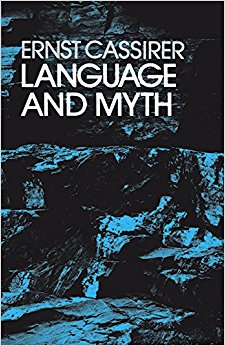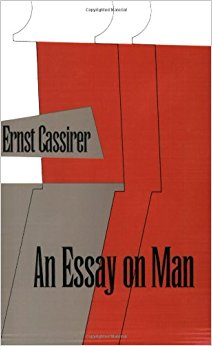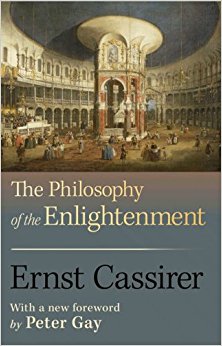Background
Ernst Cassirer was born on July 28, 1874 in Wroclaw, Poland. He was the son of Eduard Cassirer and Eugenie "Jenny" Cassirer.


Biegenstraße 10, 35037 Marburg, Germany
At Marburg, where Cassirer received the doctorate of philosophy in 1899 with a dissertation on Descartes's Critique of Mathematical and Scientific Knowledge, he was a student of Hermann Cohen and Paul Natorp, leaders of the neo-Kantian school, who had returned to Kant's philosophical teaching in contrast to that of Hegel, which was then dominant.
Kaiserswerther Str. 16-18, 14195 Berlin, Germany
After completing his preliminary education in Wroclaw, Cassirer entered the University of Berlin in 1892.
Glasgow G12 8QQ, United Kingdom
Cassirer studied at Glasgow University, earning a Legum Doctor degree from it.
Biegenstraße 10, 35037 Marburg, Germany
At Marburg, where Cassirer received the doctorate of philosophy in 1899 with a dissertation on Descartes's Critique of Mathematical and Scientific Knowledge, he was a student of Hermann Cohen and Paul Natorp, leaders of the neo-Kantian school, who had returned to Kant's philosophical teaching in contrast to that of Hegel, which was then dominant.






(In this important study, Ernst Cassirer analyzes the non-...)
In this important study, Ernst Cassirer analyzes the non-rational thought processes that go to make up culture. He demonstrates that beneath both language and myth there lies an unconscious "grammar" of experience, whose categories and canons are not those of logical thought. He shows that this prelogical "logic" is not merely an undeveloped state of rationality, but something basically different and that this archaic mode of thought still has enormous power over even our most rigorous thought, in language, poetry, and myth.
http://www.amazon.com/gp/product/0486200515/?tag=2022091-20
1953

(One of the twentieth century’s greatest philosophers pres...)
One of the twentieth century’s greatest philosophers presents the results of his lifetime study of man’s cultural achievements. An Essay on Man is an original synthesis of contemporary knowledge, a unique interpretation of the intellectual crisis of our time, and a brilliant vindication of man’s ability to resolve human problems by the courageous use of his mind.
http://www.amazon.com/gp/product/0300000340/?tag=2022091-20

(In this classic work of intellectual history, Ernst Cassi...)
In this classic work of intellectual history, Ernst Cassirer provides both a cogent synthesis and a penetrating analysis of one of history's greatest intellectual epochs: the Enlightenment. Arguing that there was a common foundation beneath the diverse strands of thought of this period, he shows how Enlightenment philosophers drew upon the ideas of the preceding centuries even while radically transforming them to fit the modern world. In Cassirer's view, the Enlightenment liberated philosophy from the realm of pure thought and restored it to its true place as an active and creative force through which knowledge of the world is achieved. In a new foreword, Peter Gay considers The Philosophy of the Enlightenment in the context in which it was written - Germany in 1932, on the precipice of the Nazi seizure of power and one of the greatest assaults on the ideals of the Enlightenment. He also argues that Cassirer's work remains a trenchant defense against enemies of the Enlightenment in the twenty-first century.
http://www.amazon.com/gp/product/069114334X/?tag=2022091-20

(A great contemporary German philosopher attacks the explo...)
A great contemporary German philosopher attacks the explosive problem of political myth in our day and reveals how the myth of the state evolved from primitive times to prepare the way for the rise of the modern totalitarian state.
http://www.amazon.com/gp/product/0300000367/?tag=2022091-20
Ernst Cassirer was born on July 28, 1874 in Wroclaw, Poland. He was the son of Eduard Cassirer and Eugenie "Jenny" Cassirer.
After completing his preliminary education in Wroclaw, Cassirer entered the University of Berlin in 1892. In accordance with the European tradition which encouraged students to work in several institutions, he attended also the universities of Leipzig, Heidelberg, Munich, and Marburg. His first intention had been to study law, but his interests carried him to literature and humanistic studies; furthermore, in the course of his work in philosophy, he engaged in an intensive study of physical science and mathematics. He studied at Glasgow University, earning a Legum Doctor degree from it. At Marburg, where he received the doctorate of philosophy in 1899 with a dissertation on Descartes's Critique of Mathematical and Scientific Knowledge, he was a student of Hermann Cohen and Paul Natorp, leaders of the neo-Kantian school, who had returned to Kant's philosophical teaching in contrast to that of Hegel, which was then dominant.
In 1919 Cassirer was appointed a professor of philosophy at the University of Hamburg, in which he became rector in 1930. During his stay in Hamburg, he developed his theories of symbolic form and myth, upon which he expounded in various works written during this period, among them was Language and Myth, which was translated into English. He moved away from the attribution of a privileged position to mathematics and science in the understanding of concepts while developing the thesis that language, mythology, and science are all different symbolic expressions for understanding the world. He held the position of lecturer at the University of Berlin.
He was also a director of the Warburg Institute in Hamburg, an institution devoted to studies in the history of culture. Cassirer was engaged in these pursuits and in active literary production when Hitler took power in 1933. With his wife, Toni Bondy Cassirer of Vienna, Cassirer then left Germany for England. He carried on his teaching at All Souls College in Oxford from 1933 to 1935, and from 1935 to 1941 he was a visiting professor at the University of Göteborg in Sweden. He came to the United States in 1941 and taught at Yale University until 1944, and at Columbia University from then until his death on April 13, 1945.
In his philosophic-historical investigations, Cassirer also considered the ideas and conclusions of Kepler, Galileo, Huygens, and Newton, as well as other scientists. On the fundamental problems of mathematics and natural science, such as number, space, time, and causality, Cassirer took a definite position.
His work also testifies to creative imagination, constant reflection on and reorganization of an immense amount of material, and an unfailing knowledge and tolerance.
(A great contemporary German philosopher attacks the explo...)
(In this classic work of intellectual history, Ernst Cassi...)
(One of the twentieth century’s greatest philosophers pres...)
(In this important study, Ernst Cassirer analyzes the non-...)
1953Political circumstances in Germany prevented wide dissemination of Cassirer’s philosophical work.
Though never a traditionalist with respect to the Jewish faith in which he was born, Cassirer retained a lifelong interest in the Jewish heritage.
His relation to neo-Kantianism was marked by independent judgment. In his teaching and writing while at the University of Berlin, from 1906 to 1919, he was generally regarded as a member of the neo-Kantian group. His interests at this time were especially in the theory of knowledge and the philosophy of science, particularly with regard to mathematics and physics, fields which he later explored further, following Einstein's theories and writings about them. He also pursued his literary and historical interests with studies of the great figures of German literature, including Lessing, Goethe, and Schiller. To this period, also, belong his biography of Kant and his edition of Kant's writings.
Quotations:
"Man is always inclined to regard the small circle in which he lives as the center of the world and to make his particular, private life the standard of the universe and to make his particular, private life the standard of the universe. But he must give up this vain pretense, this petty provincial way of thinking and judging."
"Religion claims to be in possession of an absolute truth; but its history is a history of errors and heresies. It gives us the promise and prospect of a transcendent world - far beyond the limits of our human experience - and it remains human, all too human."
"There is a conceptual depth as well as a purely visual depth. The first is discovered by science; the second is revealed in art. The first aids us in understanding the reasons of things; the second in seeing their forms. In science, we try to trace phenomena back to their first causes, and to general laws and principles. In art, we are absorbed in their immediate appearance, and we enjoy this appearance to the fullest extent in all its richness and variety. Here we are not concerned with the uniformity of laws but with the multiformity and diversity of intuitions."
"To learn a new language is, therefore, always a sort of spiritual adventure; it is like a journey of discovery in which we find a new world."
Cassirer married Toni Bondy in 1902, they had two sons and one daughter: Walter Cassirer, Georg Eugen Cassirer, and Anne Elisabeth Cassirer.
